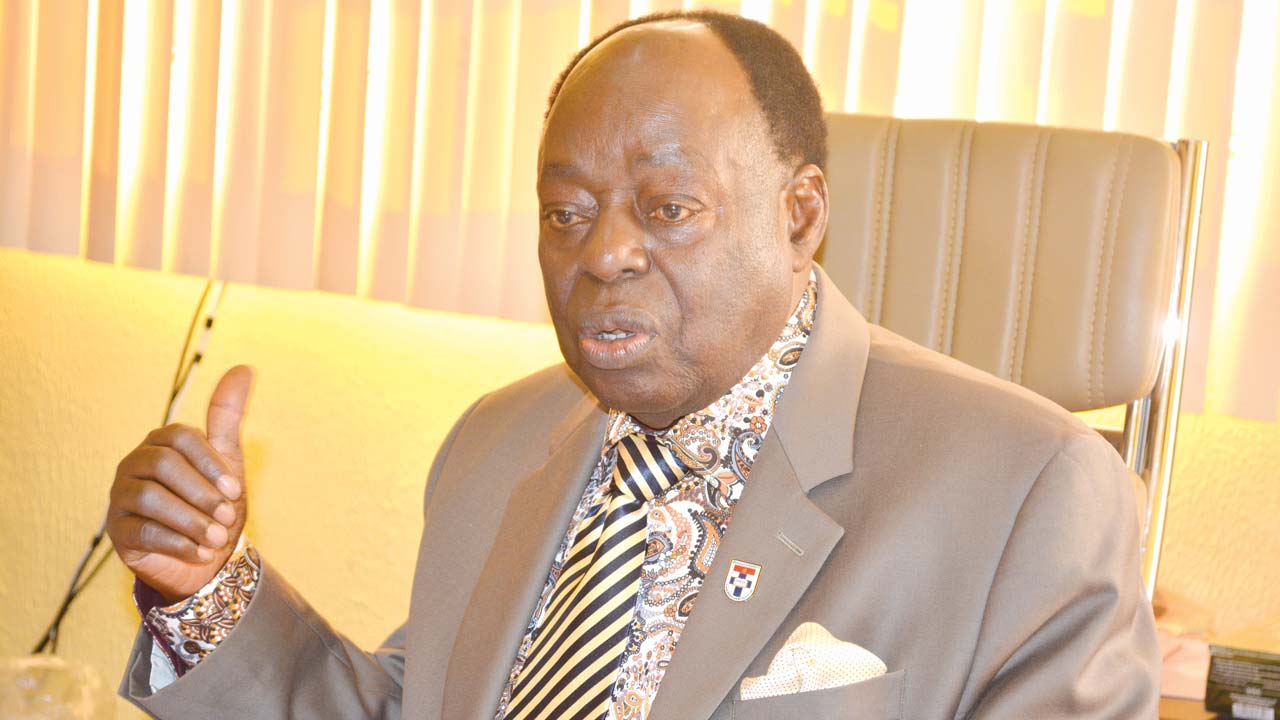 At first glance, interrogating the reading list of leaders, or asking about the books leaders read, seems like one of those hair-splitting pastimes of scholars and intellectuals. In other words, what has the reading habit of leaders got to do with more fundamental and critical issues of governance and development and the social contact leaders ought to strive to respect and service in ways that improve the quality of life of their citizens.
At first glance, interrogating the reading list of leaders, or asking about the books leaders read, seems like one of those hair-splitting pastimes of scholars and intellectuals. In other words, what has the reading habit of leaders got to do with more fundamental and critical issues of governance and development and the social contact leaders ought to strive to respect and service in ways that improve the quality of life of their citizens.
And yet, most things that are fundamental in life do not yield to superficial interpretations. We have to dig deeper most often to make the necessary substantive connection we are seeking. To make that critical connection, consider the following.
Pablo Neruda, the Chilean poet-diplomat, once penned a beautiful ode to reading: “The books that help you most are those which make you think that most. The hardest way of learning is that of easy reading; but a great book that comes from a great thinker is a ship of thought, deep freighted with truth and beauty.”
Truth and beauty are two of the most fundamental and philosophical elements that constitute the vitality of the human soul. They make for a human being that is filled with humanness that our humanity demands. And yet, Michel Foucault will not be satisfied with such a philosophical component of what reading entails. He situated the knowledge that comes with reading with the realistic space of human relations. For him, knowledge is power. Simple. Apt. Fundamental.
Reading books therefore opens up the mind to the historical trajectories and experiences of the past, and locate the reader within the space of power that bends human conduct and actions to the whims of knowledge. Now further imagine a leader who is an avid reader, who is determined to continue a constant conversation with the finest mind of the past, learn from their errors, study their actions and sit at their feet to learn wisdom they possibly bought with their lives.
These are the thoughts that run through my mind when I read the news about the Vice President taking time out to pursue his love for knowledge and books despite the tight schedules offered by the 2023 BRICS summit in South Africa, where he represented President Bola Ahmed Tinubu. The media personnel who wrote the report must know the Vice President very well. He opened up a dimension of his personality that most Nigerians are not familiar with, especially within the charged character of a politician who has been vilified and quartered for so many reasons.
Such a report about a leader who finds the time to immerse himself in knowledge makes a lot of sense to me. It is one of the passionate fundamentals that I carry around with me, apart from institutional reforms. In fact, reading, learning and education constitute significant elements that constitute the core of the mental apparatus that enhance our capacity to live together, especially within the intractable plurality that has consistently undermined Nigeria’s national integration project.
Thus, coming from a most rigorous administrative struggle to enhance Nigeria’s education sector reform as head of the policy division, I had the opportunity to institutionalise my book passion with the setting up of the Ibadan School of Government and Public Policy (ISGPP) Book Readers Club. The idea stems from the belief that Nigeria’s democratic experiment is the worse for it if it is not backstopped by a vibrant reading culture that enhances the political sophistication of the citizenry and its capacity to interrogate democratic and governance practices of the Nigerian government.
The Book Readers Club therefore makes available critical books that bring together a significant segment of Nigeria’s intelligentsia to brainstorm on what ideas and conversations around them can yield for how we think about Nigeria and her development trajectory.
It is this primacy of knowledge and its capacity to foreground power relation that drew my attention to the report about the voracious habit of Senator Shettima at the Sandton bookstore in Johannesburg, South Africa. Finding the Vice President of Nigeria browsing through different genres of books in a bookstore, in the midst of a high-level summit, brings to mind Harry S. Truman’s iconic observation that “Not all readers are leaders, but all leaders are readers.” The key word here is “leaders” and not “rulers” who, we should assume, have no time for reading. And it is to such leaders that Plato ascribed the guardianship of the Republic. And the reason is simple— they only have left the dungeon of received opinions and shadowy existence and have been opened to the light of enlightenment.
But there is an even more serious implication from the perspective of racial and postcolonial consideration. It has often been said that if anyone want to hide anything significant from a black person, the best place is right within the pages of books. This is said to underscore the supposed aversion of black people to reading and enlightenment. And so, this makes it all the more imperative that the reading culture be reinvented within a space where life is increasingly taking on a more materialistic and hedonistic shades.
Both old and new are getting immersed in a survivalist mindset that does not even allow learning from the wisdom inherent in books and reading. And this makes it all the more rewarding that the new administration has the calibre of the Vice President who could discuss ideas and initiatives from multiple perspectives offered him by opening up his mind to discourses and alternative pathways offered by the discipline of reading.
But let me now hedge my deep and profound admiration with some critical observations and arguments. To be sure, reading and the discipline of learning from books are necessary ingredients that go into the making of any good leader. And I can cite examples from Vaclav Havel to Obafemi Awolowo, and from Kwame Nkrumah to Barack Obama to Bill Gate. And yet, reading and the love for knowledge and learning cannot be sufficient to sum up the weight of leadership.
There are so many leaders who are avid readers but have failed to allow the open-mindedness made possible by learning help them transcend their primordial and parochial sentiments. Adolf Hitler was familiar with philosophies, and yet took deadly decisions that led to the Holocaust. I am really hoping that the years ahead will enable the Vice President to sufficiently fill out the imperatives and implications that lead from his deep desire for the acquisition of ideas and knowledge to the filling out of a role model and leader imbued with the empathy that learning brings.
And within the context of Nigeria’s raging ethnic zone and rampaging underdevelopment, such a leader must first allow the capacity for an enlarged mind to be the source for a detribalized personality that can relate with a multiplicity of perspectives without uncritically privileging any.
And for such an emerging leader, there are so many points of actions and policy articulation that could be the basis of building an enduring leadership legacy. And these are serious issues that have their impacts on Nigeria’s development profile.
Let me start with Nigeria’s youth demographics and the emerging crisis of learning. As at 2022, Nigeria’s illiteracy rate stood at 31per cent. It takes little reflection to see how such a figure will affect the impact of Nigeria’s youth bulge on her development planning.
If the youth that ought to be the human capital backbone for resuscitating Nigeria’s economy are battling with a 33.3 per cent youth unemployment rate, an unbelievable level of school dropouts, learning poverty, and the dehumanizing phenomenon of child marriage and labour, then one can imagine the level of disillusionment. One can then see how such statistics apply to Senator Shettima’s home state, and the possibility of a leader who goes from an avid love for knowledge to one who makes education a single-minded priority.
The implication of an education sector that is dysfunctional is unimaginable for a developing state like Nigeria. Libraries are no longer a distinct feature of our urban spaces. And of course, bookshops are either closing up or are struggling to serve a diminishing clientele. Only few organisations and schools are still passionate about sustaining academic quizzes, debates and essay competitions in Nigerian schools. And intellectual properties have been almost inextricably lost to piracy which deprive creative talents the right to benefit from their sweat.
We should not forget the structural constraints that undermine the capacity of academics and intellectuals from publishing ideas that could serve as the fulcrum for energizing an intellectualism that can sustain the relationship between government and scholarship.
And the situation becomes even more precarious when we confront the terrible disjuncture that disconnects knowledge production from serving as the enablement for government functionaries, civil servants and other professionals, as well as the entire gamut of human capital dynamics that Nigeria needs to make sense of her development agenda and national progress.
What a leader reads, and the passion that attends such a leader’s acquisition of knowledge and the open-mindedness that attends it, plays a fundamental role in opening up vistas of possibilities for a state’s policy architecture, starting with the education sector and the human capital dynamics.
It is in this sensethat Vice President KashimShettima becomes an exemplary pathway for the condition of leadership that has the possibility of undermining Nigeria’s leadership deficit.
Olaopa, retired Federal Permanent Secretary and Professor of Public Administration. [email protected]






